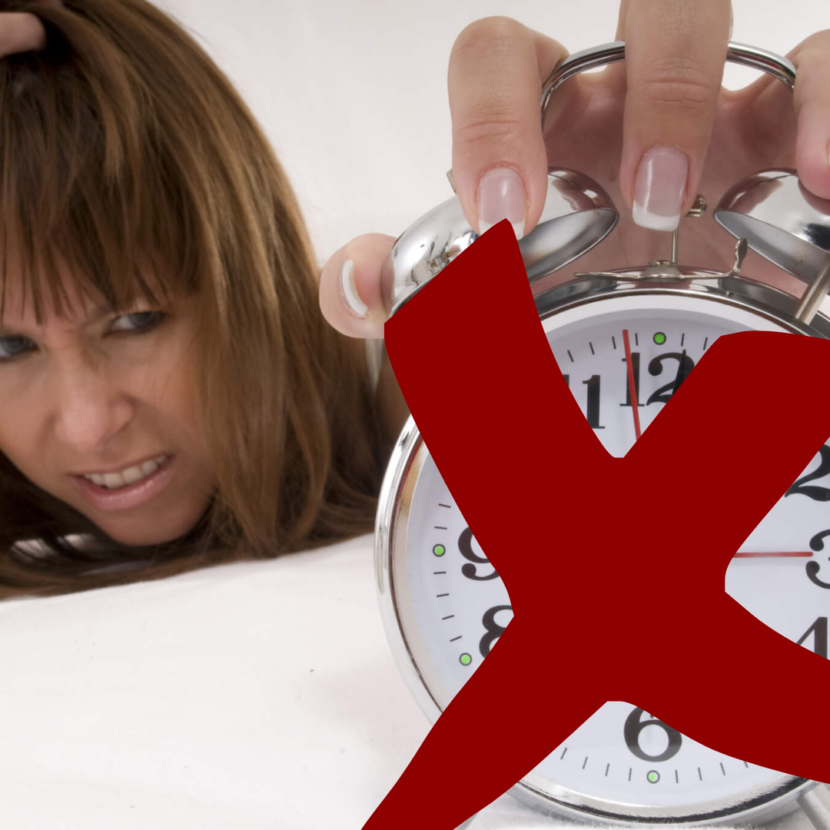Should you set the alarm or wake up naturally?
When someone sets an alarm clock, there’s fear at work: fear of missing work, school, or whatever.
The fear may be warranted. If you go to bed too late, you’ll be tired in the morning. Do that every day and you’ll set yourself up for long-term sleep deprivation.
If you rely on the alarm and it fails for some reason, there’s a good chance you’ll sleep right through when you need to be up and moving around. After all, you’ve got to get to work in the morning at a particular time or start school. Your life moves along on a schedule.
A routine makes anything easier. Having a routine where you depend on an alarm clock makes it easier to be dependent on the alarm and caffeine.
Such a life can’t be anyone’s ideal life. Nobody’s ideal vision of the person they’d like to be includes them stumbling around numb and irritable.
That can effect every aspect of your health. It’s best if you can wake up naturally. You’re supposed to wake up feeling good every morning. If you don’t eliminate or change whatever stands in the way of doing this, you won’t be living your best life.
If you use an alarm, use it as a fail-safe, a backstop, so you don’t have anxiety. Don’t rely on it.
Look at how we’ve lived historically as a species.
A lot changed for a lot of people after the Industrial Revolution.
They used to get a whole night of sleep.
Your ancestors had no problem with an alarm clock cutting their sleep short. While various alarm clocks were built before, the first mass-produced alarm clock was made in 1876. People went to bed shortly after the sun went down and got up when the first rays were peaking over the horizon—at the latest.
They had the routine where there were two periods of sleep. The first sleep would be in the evening. The second would be at some other time in the day or afternoon when they’d rest again. This pattern disappeared along with the invention of the electric light and the alarm.
If you sleep until the last moment when the alarm goes off, you’re doing it wrong. The alarm activates and shocks you out of whatever sleep cycle you’re in the middle of.
Budget the time in the day so that you get plenty of sleep. Your best life calls for you to wake up before the alarm, take stock of whatever dreams you had, and remember all the details you can by using PACTREPS and then jotting them down in a dream journal. That’s how you take stock of whatever inspiration or understanding you encounter at night.
The alternative is being jarred awake by an alarm clock during a sleep cycle, stumbling to the bathroom, chugging some stimulant with caffeine, and bumbling through another day. You’ll never feel fully awake. That’s a horrible way to live.
Keep in mind you’ll never have a perfect life. Reality and other people, situations, and circumstances can interfere. Discontent is vital because it helps you to be creative and solve problems.
While the perfect life is impossible, the best possible life isn’t. That includes sleeping enough to meet the challenges of the day.
For further reading:
Set an alarm and get to bed on time.
Social jet lag (forced synchronization) can be a real drag
James Cobb, RN, MSN, is an emergency department nurse and the founder of the Dream Recovery System. His goal is to provide his readers with simple, actionable ways to improve their health and maximize their quality of life.
We use some affiliate links. We may receive a commission if you click on a link and make a purchase. This does not affect our opinions, and we don’t care if you do or don’t use them. We’re above that, far too altruistic. For example, you don’t see any link here to buy an alarm clock.
